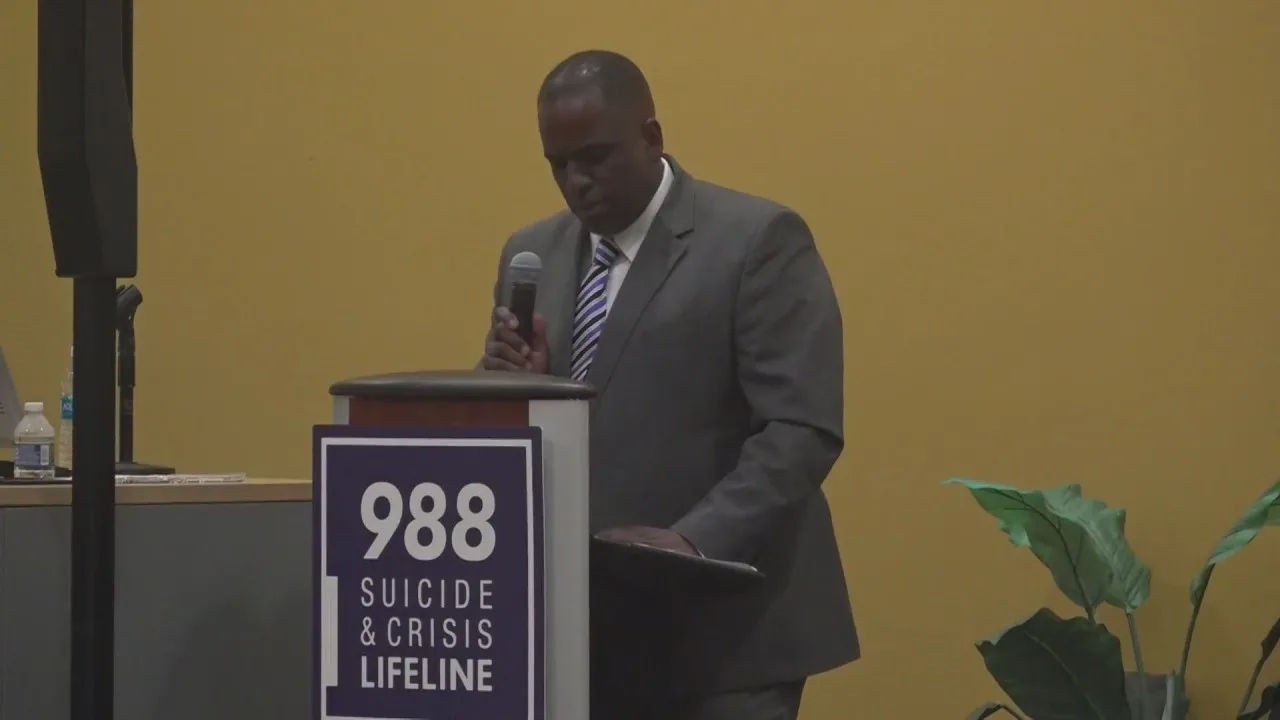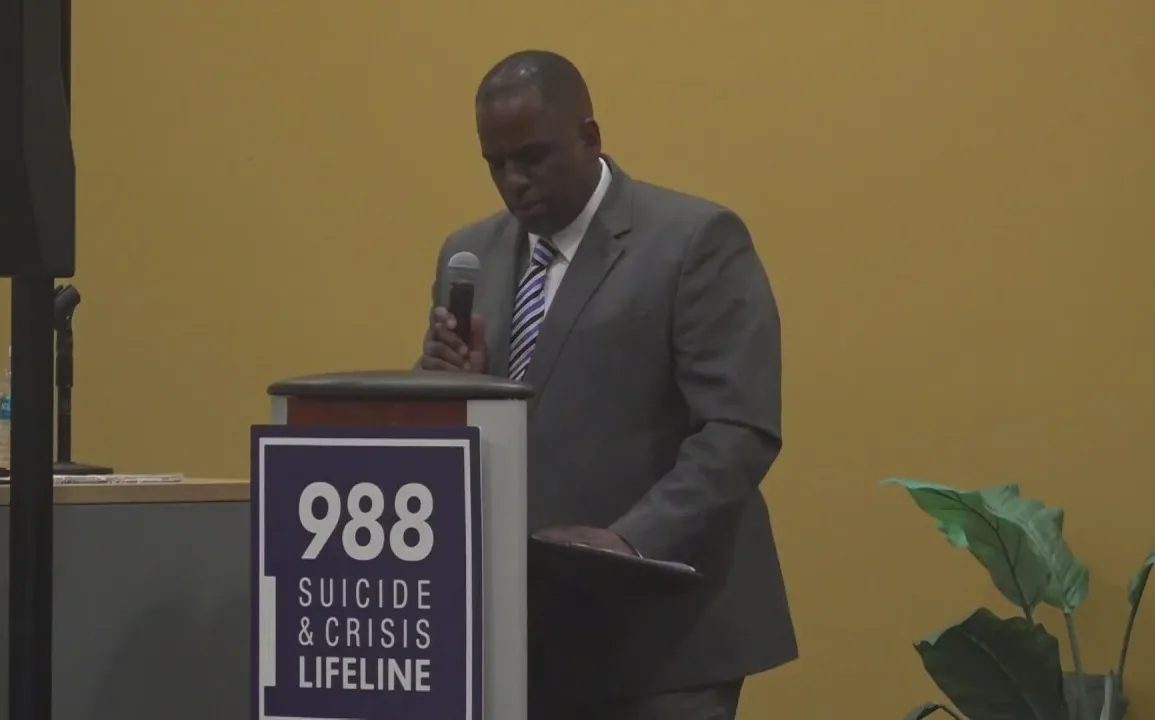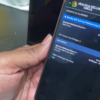
ST. LOUIS – Missouri is in the top ten states in the nation for its 988 call and text response, but a concern for federal and state health officials is the rapid rising suicide rate among Black teenagers.
Officials stopped at Harris-Stowe State University in St. Louis Thursday to recognize the one-year anniversary of the 988 Suicide and Crisis Lifeline. The hotline was created to help connect people with resources quickly during a time of need without having to remember a 10-digit phone number. Since going live last July, call volumes in Missouri have increased by 70%.
The stop at one of the state’s two Historically Black College and Universities (HBCUs) is part of a nationwide tour. State, local and federal suicide prevention leaders focused the even on the alarming rise in suicide rates.
“From 2010 to 2020, the suicide rate rose 43% among Blacks,” said Joseph Palm, U.S. Health and Human Services Regional Director, in an auditorium full of students Thursday. “We’re seeing such a large increase in Black males with suicide.”
For more than 365 days, a three-digit number has been helping thousands of Missourians. Suicide is the 10th leading cause of death in Missouri, with more than 1,200 people dying by suicide last year.
“Missouri is recognized as one of the top ten states in the nation for call and response to calls and texts,” Lt. Gov. Mike Kehoe said. “I can tell you we’ve answered over 51,000 calls, 6,200 texts and 8,100 chats.”
The 11-digit National Suicide Prevention Lifeline switched to 988 last July, with the hopes of making it easier for people in crisis to seek help.
“When their house is on fire, or they experience an emergency, people call 911,” Kehoe said. “We need to make sure people understand that mental health emergencies are real and that 988 can be there to help you.”
Thursday, a plea from suicide prevention leaders to college students, asking them to call 988 when in need.
“Before you make that decision that you can’t walk back from,” Director of Behavioral Health at the Department of Mental Health Nora Bock said. “Please give us a chance. Please call us. Please don’t ignore this resource.”
The Missouri Department of Mental Health (DMH) oversees the state’s contract with the national hotline. Missouri will have six different calls centers plus one text line. When you call 988, you will be routed to the closest call center based on your area code. The following health centers respond to different regions of the state.
- Behavioral Health Response – northeast and southeast Missouri, including St. Louis County and City
- Burrell Behavioral Health – central and pieces of southwest Missouri, including Columbia and Branson
- CommCARE – northwest Missouri, including Jackson County
- Compass Health – throughout central Missouri, including Lake of the Ozarks, St. Charles County, and Cass County
- Ozark Center – southwest Missouri, including Joplin
- Provident Behavioral Health – southwest Missouri, including Dad, Lawrence and Barry counties.
But, if you don’t want to pick up the phone and call, you can text. Texting 988 also connects you to crisis specialists that are trained to stablizie or make referrals.
“Mental health crisis, needs, affect everyone,” DeafLEAD Director of Crisis Chat and Text Services Tyler Hannsz said. “There is not an identity, a demographic that is immune to experiencing mental health crisis, to experience emotional distress.”
According to the Missouri Behavorial Health Council, there were 46,647 988 calls in Missouri in the last year and 7,241 texts and 11,065 chats. In July 2022, when 988 went live, in Missouri there were 3,349 calls into the new hotline compared to 4,189 in June 2023.
Even students telling their peers Thursday, it’s okay to ask for help.
“Since I grew up in a household where we didn’t talk, I learned to whether my storms by myself, but when I came to college, I learned that if I wanted to be my best me, I couldn’t do that,” Harris-Stowe State University student Tashlyn Whitworth said. “So, I had to seek help. To be our best self, we have to want better for ourselves.”
Even though 90% of the 988 calls are managed over the phone, sometimes a face-to-face conversation is necessary in hopes of decreasing arrests and hospitalizations. Palm, a former St. Louis firefighter, said this new hotline is also helping first responders.
“What they have told me is that it’s reduced the amount of calls we have to respond to because people can call that number and of course first responders will respond, but it’s not the primary profession of first responders to be counselors for mental health,” Palm said.
Over the past two years, the state has allocated nearly $30 million to 988.
Currently, when you call 988, you’re routed to a call center based on your area code, meaning it might not be answered locally. Moyer said at the national level, 988 is working on a plan, so your call would instead be routed based on your location.
In 2020, the National Suicide Lifeline received nearly 2.4 million crisis calls across the state. You can still reach the hotline by calling 1-800-273-8255. For more information, or to chat with someone from 988, click here.



